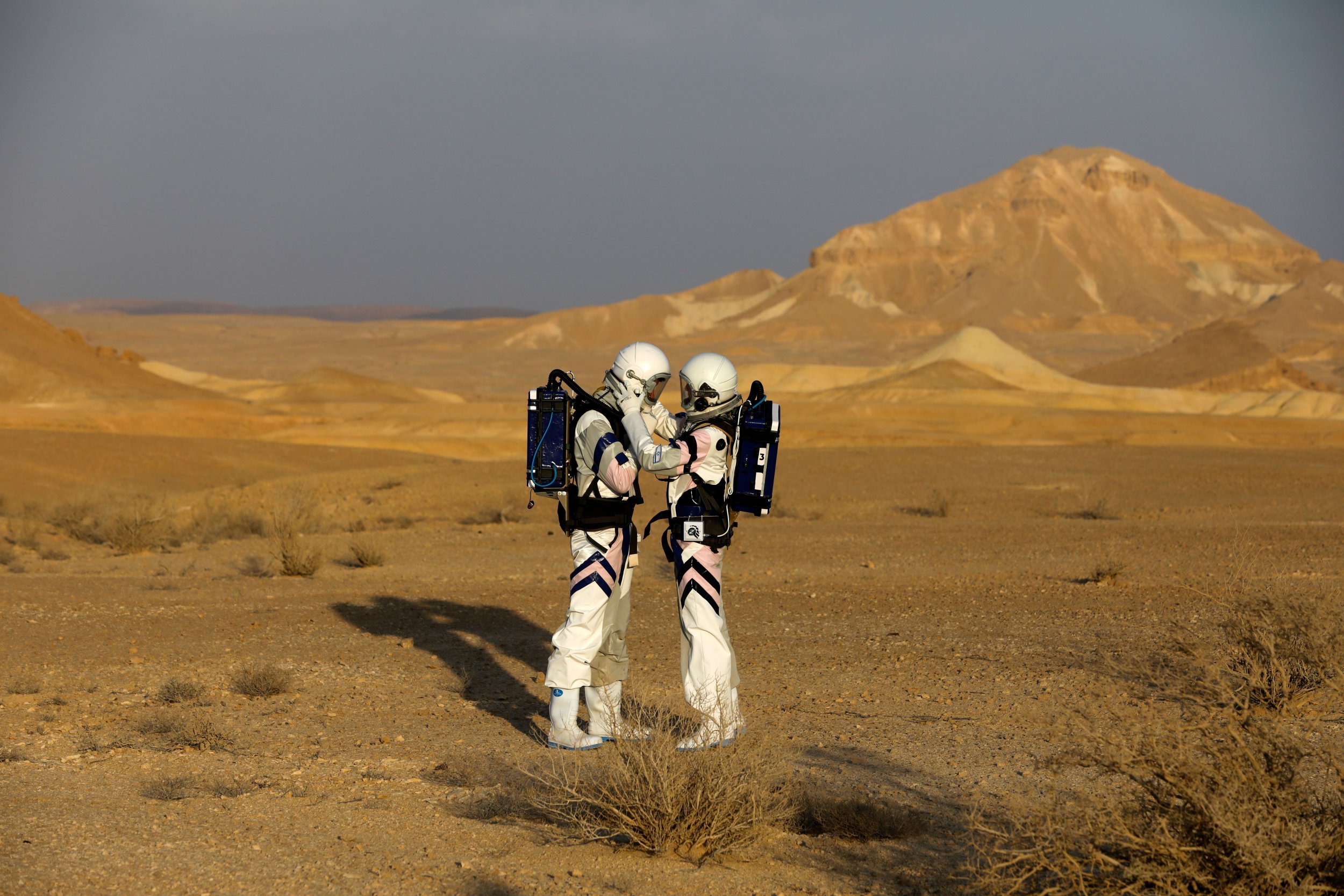
A former astronaut who spent months 250 miles above Earth says humans could have traveled to Mars "decades ago"—but the missions would have almost certainly ended in death.
Space programs like NASA and SpaceX have the technology to send astronauts to Mars, retired International Space Station Commander Chris Hadfield said. But even with the means to travel, astronauts likely would have died in transit due to the high-risk conditions of a long space outing.
"The majority of astronauts that we send on those missions wouldn't make it," he told Business Insider.
The trip to Mars, about 140 million miles from Earth, could take up to three years. Longer space flights expose astronauts to higher risks of explosion, fuel and food shortages, and cosmic radiation that could cause long-term brain damage, he said.
Current spacecraft use chemical rockets to blast through Earth's atmosphere and space, a relatively inefficient mode of space travel that trades supplies and protection gear capacity for fuel stores. Even emerging rockets like SpaceX's Big Falcon and NASA's Space Launch System burn fuel to launch into space. Hadfield compared the method to "using a sailboat or a pedal boat to try and travel around the world.
"I don't think those are a practical way to send people to Mars because they're dangerous and it takes too long, and it therefore exposes us to a risk for a long time," he said.
Prolonged space travel is possible, though: NASA astronaut Scott Kelly spent 340 consecutive days at the International Space Station in 2015 through 2016, the longest stay in space by an American astronaut. A Martian tour would mark the farthest interplanetary distance traveled by humans, a record currently held by the 1970 Apollo 13 mission, which ventured almost 250,000 miles from Earth—about 1/560 of the way to Mars.
Scientists have already tested the limits of human life on Mars. In 1991, astronauts began a two-year earthbound mission inside Biosphere 2, an ecological chamber and space colony simulation that generated the air, food and water conditions found on the planet to measure the human response. Project researchers posited that life on Mars would require a bioregenerative system in which plants, animals and microbes replenish the necessary conditions for life in an air-locked enclosure.
Travel to the Red Planet is still at least a decade away, according to NASA. The agency said it plans to send man-led missions to Mars sometime in the 2030s, after President Donald Trump signed Space Policy Directive 1 in December 2017, which called for expanded human exploration of the solar system.
Uncommon Knowledge
Newsweek is committed to challenging conventional wisdom and finding connections in the search for common ground.
Newsweek is committed to challenging conventional wisdom and finding connections in the search for common ground.
About the writer
Scottie is a Newsweek science fellow and student at the University of Florida. Her work has appeared in Women's Health, the Gainesville ... Read more
To read how Newsweek uses AI as a newsroom tool, Click here.








